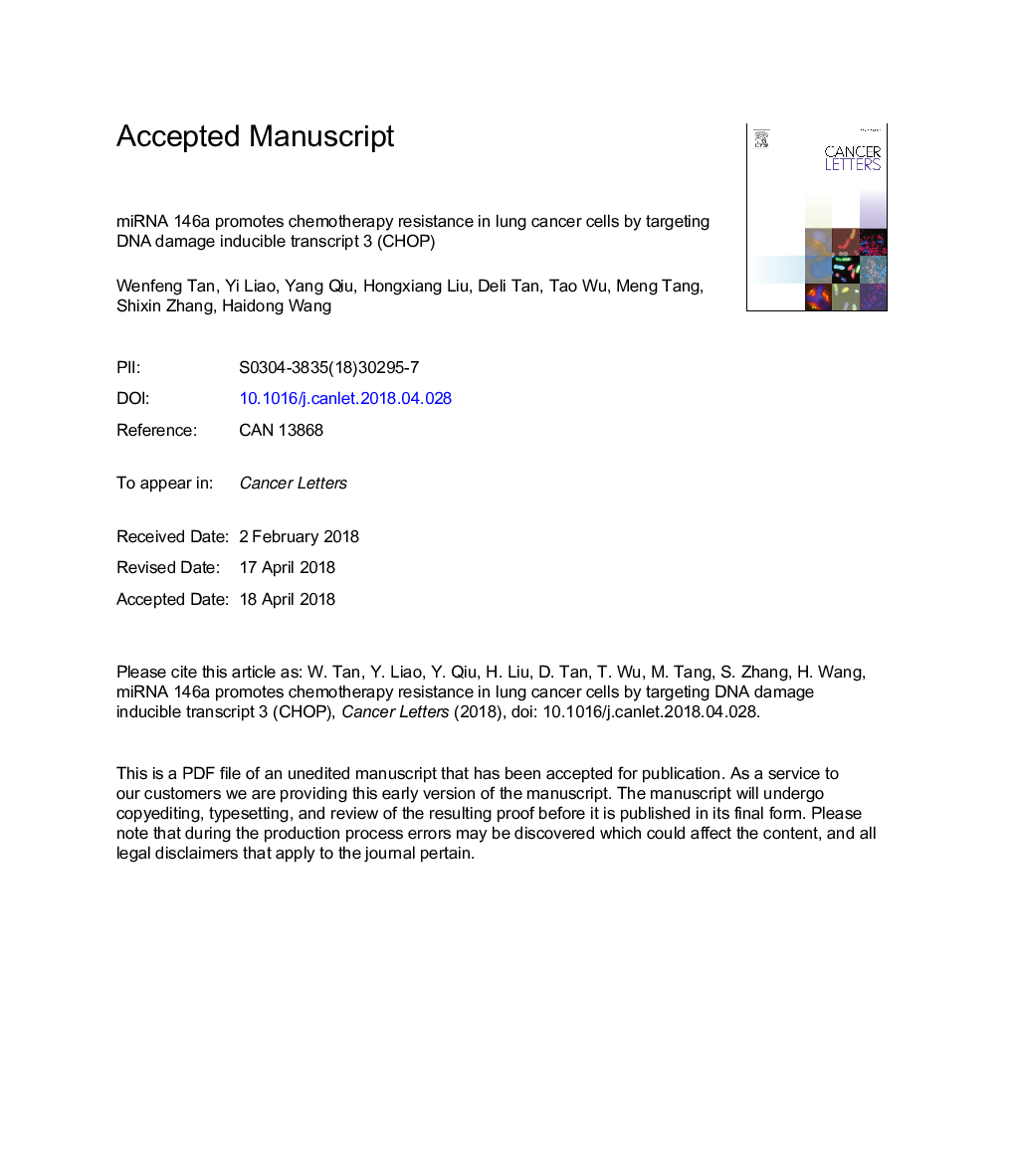| Article ID | Journal | Published Year | Pages | File Type |
|---|---|---|---|---|
| 8434352 | Cancer Letters | 2018 | 35 Pages |
Abstract
The underlying molecular mechanism of lung cancer drug resistance is poorly understood. The mediator of endoplasmic reticulum stress CHOP (DNA damage inducible transcript 3) promotes stress-induced apoptosis and appears to function as a transcription factor in multiple diseases. However, its potential contributions to multidrug resistance in solid tumors is unknown. Here, we investigated CHOP expression in tumor tissues form 69 lung cancer patients, finding that deficient CHOP expression is associated with poor prognosis. Cisplatin-resistant lung cancer cells exhibited lower expression of CHOP compared to that in sensitive lung cancer cells, and silencing or augmenting CHOP expression enhanced or impaired cisplatin resistance, respectively. Mechanistic investigations revealed that CHOP is directly associated with the regulation of autophagy or apoptosis-regulatory genes including LC3-II, death receptor 5 (DR5), and telomere repeat-binding factor 3. Notably, CHOP was identified as a target of miR-146a, and increased miR-146a expression in lung cancer cells was suggested to be responsible for CHOP mRNA down-regulation. Further, animal models confirmed that abnormally expressed miR-146a in lung cancer cells does not affect growth, but rather alters chemotherapy sensitivity. Together, CHOP is a useful prognostic marker and miR-146a is a potential therapeutic target for multidrug-resistant lung cancer.
Related Topics
Life Sciences
Biochemistry, Genetics and Molecular Biology
Cancer Research
Authors
Wenfeng Tan, Yi Liao, Yang Qiu, Hongxiang Liu, Deli Tan, Tao Wu, Meng Tang, Shixin Zhang, Haidong Wang,
